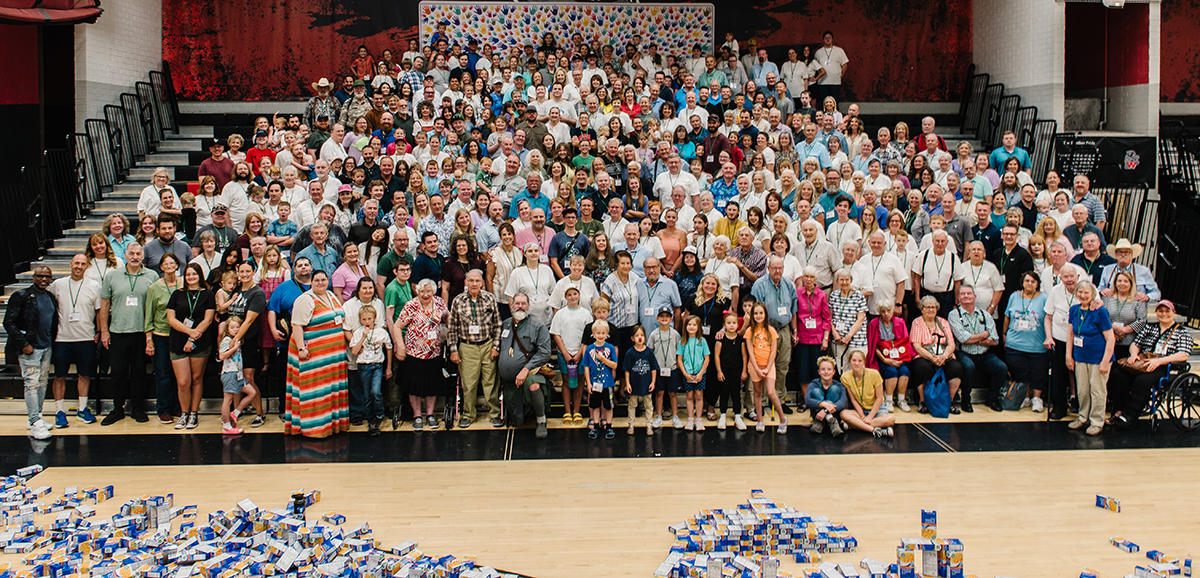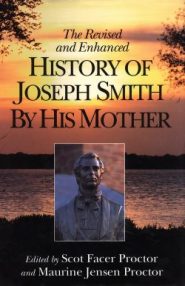Seven-year-old Joseph Smith Jr. suffers from a large fever sore, then contracts osteomyelitis in his left leg. Medical efforts to relieve his suffering. Drs. Smith, Perkins, Stone, et al. perform an experimental operation on Joseph’s leg in an attempt to save it. Joseph, now on crutches, eventually recovers and goes to Salem, Massachusetts, with his uncle.
Summer 1813 to late fall 1813
I shall here be under the necessity of turning the subject to my third son, Joseph, who had so far recovered that he could sit up. Then, one day, he suddenly screamed out with a severe pain in his shoulder and seemed in such extreme distress that we were fearful that something dreadful was about to ensue, and sent immediately for the doctor. When he arrived and had examined the patient, he said he was of the opinion that it was a sprain, but the child said this could not be the case, as he had not been hurt; but a sharp pain had taken him very suddenly, and he knew no cause for it.
The physician insisted upon the truth of his first opinion and anointed the shoulder with bone liniment, but the pain remained as severe as ever for two weeks. When the doctor came again, he made a closer examination and found that a very large fever sore had gathered between Joseph’s breast and shoulder. He immediately lanced it, upon which it discharged a full quart of matter.1
As soon as this sore had discharged itself, the pain left it and shot like lightning (as he said) down his side into the marrow of his leg bone on the same side.2 The boy was almost in total despair and cried out, “Oh, Father, the pain is so severe! How can I bear it?â€
His leg immediately began to swell and he continued in the most excruciating pain for two weeks longer. During this time, I carried him in my arms nearly continually, soothing him and doing all that my utmost ingenuity could suggest to ease his sufferings, until nature was exhausted and I was taken severely ill myself.
Then Hyrum, who was always remarkable for his tenderness and sympathy, desired that he might take my place.3 As he was a good, trusty boy, we let him do so, and, in order to make the task as easy for him as possible, we laid Joseph upon a low bed and Hyrum sat beside him, almost incessantly day and night, grasping the most painful part of the affected leg between his hands and, by pressing it closely, enabled the little sufferer the better to bear the pain which otherwise seemed almost ready to take his life.
At the end of three weeks, he became so low that we sent again for the surgeon. When he came, he made an incision of eight inches on the front side of the leg between the knee and ankle. This somewhat relieved the pain, and the patient was quite comfortable until the wound began to heal, when the pain became as violent as ever.
The surgeon was called again, and he this time enlarged the wound, cutting to the bone. It commenced healing the second time, and as the healing progressed, the swelling continued to rise till we deemed it wisdom to call a council of surgeons; and when they met in consultation, they decided that there was no remedy but amputation.4
Soon after coming to this conclusion, they rode up to the door, and I invited them into another room apart from the one where Joseph lay. “Now,†said I, “gentlemen [for there were seven of them],5 what can you do to save my boy’s leg?â€
They answered, “We can do nothing. We have cut it open to the bone and find the bone so affected that it is incurable, and that amputation is absolutely necessary in order to save his life.â€
This was like a thunderbolt to me. I appealed to the principal surgeon present, saying, “Dr. Stone, can you not try once more? Can you not, by cutting around the bone, take out the diseased part? There may be a part of the bone that is sound which will heal over, and thus you may save the leg. You will not, you must not, take off his leg, until you try once more. I will not consent to your entering his room until you promise this.â€
After a short consultation, they agreed to do as I requested; then we went to my suffering son. The doctor said, “My poor boy, we have come again.†“Yes,†said Joseph. “I see you have; but you have not come to take off my leg, have you, sir?†“No,†said the surgeon. “It is your mother’s request that we should make one more effort, and that is what we have now come for.â€
My husband, who was constantly with the child, seemed to contemplate for an instant my countenance; then, turning his eyes upon his boy, at once all his sufferings together with my intense anxiety rushed upon his mind. He burst into a flood of tears and sobbed like a child.
The principal surgeon, after a moment’s conversation, ordered cords to be brought to bind Joseph fast to the bedstead, but Joseph objected. When the doctor insisted that he must be confined, Joseph said decidedly, “No, Doctor. I will not be bound. I can bear the process better unconfined.â€
“Then,†said the doctor, “will you take some wine? You must take something, or you can never endure the severe operation to which you must be subjected.â€
“No,†answered the boy. “I will not touch one particle of liquor, nor will I be tied down, but I will tell you what I will do. I will have my father sit on the bed close by me, and then I will do whatever is necessary to be done in order to have the bone taken out. But, Mother, I want you to leave the room. I know that you cannot endure to see me suffer so. Father can bear it. But you have carried me so much and watched over me so long, you are almost worn out.†Then, looking up into my face, his eyes swimming with tears, he said beseechingly, “Now, Mother, promise me you will not stay, will you? The Lord will help me. I shall get through with it, so do leave me and go a way off, till they get through with it.â€
To this I consented. So, after bringing a number of folded sheets to lay under his leg, I left and went several hundred yards from the house in order to be out of hearing.
The surgeons began operating by boring into the bone of his leg, first on one side of the affected part, then on the other side, after which they broke it loose with a pair of forceps or pincers. Thus, they took away nine large pieces of the bone. When they broke off the first piece, he screamed so loud with the pain of his leg that I could not forbear running to him, but as soon as I entered the room, he cried out, “Oh, Mother! Go back! Go back! I do not want you to come in. I will tough it out, if you will go.â€
When the third fracture was taken away, I burst into the room again, and, oh, my God, what a spectacle for a mother’s eye! The wound torn open to view, my boy and the bed on which he lay covered with the blood that was still gushing from the wound. Joseph was pale as a corpse, and the big drops of sweat were rolling down his face, every feature of which depicted agony that cannot be described.
I was forced from the room and detained until they finished the operation. After they had placed him upon a clean bed with fresh clothing and had cleared the room from every appearance of blood and any apparatus used in the extraction, I was permitted to enter.6
Joseph now began to recover, and when he was able to travel he went with his uncle Jesse Smith to Salem7 for the benefit of his health, hoping that the sea breezes might help him. In this, we were not disappointed, for he soon became strong and healthy.
After one whole year of affliction, we were able once more to look upon our children and each other in health, and I assure you, my gentle reader, we realized the blessing, for I believe we felt more to acknowledge the hand of God in preserving our lives through such a desperate siege of disease, pain, and trouble than if we had enjoyed health and prosperity during the interim.
NOTES
- Joseph Smith Jr. Later recalled this time and dictated to Willard Richards in December 1842 the following for his manuscript history: “When I was five years old or thereabouts I was attacked with the typhus fever, and at one time, during my sickness, my father despaired of my life. The doctors broke the fever, after which it settled under my shoulder, and Dr. Parker called it a sprained shoulder and anointed it wil bone ointment, and freely applied the hot shovel, when it proved to be a welling under the arm, which was opened, and discharged freely; after which the disease removed and descended into my left leg and ankel and terminated in a fever sore of the worst kind, and I endured the most acute suffering for a long time under the care of Drs. Smith, Stone, and Perkins of Hanover.” (Papers, p. 268.)
- The left side.
- Hyrum was thirteen years old at this time.
- This “council of surgeons,” likely including some medical students, was headed by Dr. Nathan Smith, founder of Dartmouth Medical School, and Dr. Cyrus Perkins. The disease that Joesph contracted after the fevers was osteomyelitis. concerning this condition, a modern reference source states that it is “a bacterical, fungal, or rickettsial infection within bone and bone marrow” that is commonly related to infections located elsewhere in the body. In children, osteomyelitis usually starts “near the ends of long bones in the legs, and spreads through the marrow and other bone channels, causing high fever, chills, pain, and an abscess at the infection site.” This source goes on to say that without antibiotic treatment, there is risk of bone destruction. (The New Grolier Multimedia Encyclopedia, Release 6, 1993, s.v. “osteomyelitis.”)
- Joseph recalled the scene in the following way: “At one time eleven doctors came from Dartmouth Medical College, at Hanover, New Hampshire, for the purpose of amputation, but, young as I was, I utterly refused to give my assent to the operation, but I consented to their trying an experiment by removing a large portion of the bone from my left leg, which they did, and fourteen additional pieces of bone afterwards worked out before my leg healed, during which time I was reduced so very low that my mother could carry me with ease; and after I began to get about I went on crutches til I started for the state of New York” (Papers, p. 268). Joseph was on crutches for over three years and had a slight limp the rest of his life.
- It appears from the record that from the time of Joseph’s crying out in pain with the fever sore under his arm until the day of the operation on his leg, the passage of time was between fifty and sixty-four days.
- This is Salem, Massachusetts, and was approximately 130 miles away.


